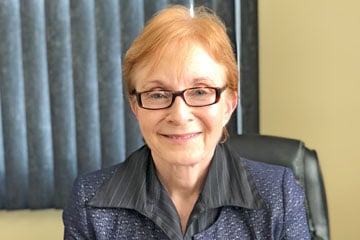
A lawyer is challenging Legal Aid Ontario on the way her panel membership was handled.

A lawyer is challenging Legal Aid Ontario on the way her panel membership was handled.
Oshawa criminal lawyer Mary-Clare MacKinnon filed a factum with the Ontario Superior Court of Justice Divisional Court on Aug. 17, following a notice of application for judicial review dated July 18, according to documents provided to Law Times.
MacKinnon was a full-time LAO employee from 1999 to 2015, when she was manager of duty counsel services in Oshawa for criminal matters, she says in her notice of application. However, after the investigation of a harassment dispute between several employees she supervised, MacKinnon opted to leave her position at LAO rather than take a non-managerial role. Then, her new role as a duty counsel was stopped by the old dispute between her former employees, according to a factum.
Letters filed from MacKinnon’s lawyer, Mark Fletcher, a partner at Grosman Gale Fletcher Hopkins LLP, to LAO detail that legal aid’s decision to exclude Oshawa from her panel membership has “inhibited her private practice,” has made her work inaccessible as she no longer has a vehicle and has interfered with her weekend availability for bail court hearings.
“Despite the fact that Ms. MacKinnon was not personally accused of harassment and that she acted appropriately to escalate [the complaint] as soon as it came to her attention, on July 29, 2015, she was called into a meeting with Randal Ellsworth, LAO vice president, and informed LAO wanted to remove her managerial responsibilities and transfer her to LAO’s Scarborough office as a criminal duty counsel,” the factum said.
“Having done nothing wrong, Ms. MacKinnon was not prepared to accept a demotion and be forced to work in another city, so she rejected LAO’s offer and her employment was terminated without cause.” At the end of 2014, MacKinnon’s notice of application said, an Oshawa criminal duty counsel alleged she was being bullied and harassed by colleagues Chris Amodeo and Yaroslav Obouhov.
MacKinnon said in her factum that she took the allegations of bullying and harassment seriously and that she informed her supervisor of the issue the same day. MacKinnon’s factum says she fully and willingly participated in the investigation, and both Amodeo and Obouhov were dismissed with cause.
Chris Amodeo says he unequivocally denies the allegations made against him about bullying and harassment. Amodeo sued LAO for wrongful dismissal, he says, and challenged its assertion whether LAO had cause for termination. Amodeo says the lawsuit was settled with LAO, and he cannot discuss the terms of the settlement.
“I currently appear on behalf of LAO as a per-diem duty counsel, helping LAO clients in court and working directly with LAO employees,” he said, in an email comment. “Also, LAO distributes a list of its Oshawa certificate panel lawyers to local LAO clients which includes my contact information in order to assist LAO's clients in retaining my services.”
In 2016, LAO offered Mac-Kinnon entry to LAO’s duty counsel panel, on the condition that she not provide duty counsel services in Oshawa. In doing so, MacKinnon claims in her notice application, LAO is exercising discretion it does not have and had denied her application based on “spurious reasoning.”
However, a letter from LAO suggests that there were findings of “both file tampering and harassment reports,” although MacKinnon’s factum says she was not provided with copies of those findings. LAO said in a statement that it takes panel management very seriously and plans to file a response but that it cannot comment further on issues before the court. MacKinnon says the goal of her legal action is to get legal aid to make a decision, a process that the legal aid website says takes three to six weeks but has taken MacKinnon since 2015.
Although she has part-time work at a law firm, she says she’s spent more than 15 years of her life doing legal aid work and hopes LAO allows her to perform per diem duty counsel duties in Oshawa.
Legal aid “employs lawyers who are protecting the legal rights of persons accused of criminal offences, and that’s so important,” MacKinnon says.
Christopher Wirth, a partner at Keel Cottrelle LLP, who was not involved in the matter, says the case raises intriguing questions surrounding the administrative law and regulations that govern LAO.
“It will be interesting to see how the court will balance that [administrative law] issue with the general obligation that all employers, including LAO, have to ensure a safe work environment for their employees,” he says. Obouhov told Law Times that his incident doesn’t involve MacKinnon and she shouldn’t be left in a limbo where her panel application is neither approved nor denied.
“If you are a criminal lawyer or a family lawyer or an immigration lawyer, an ability to accept legal aid certificates, depending on the type of practice you run, it may be essential to your ability to make a living. The degree of procedural fairness that attaches to a decision to deny that should be somewhat higher,” Obouhov says.
Editor's note: Sept. 10, 2018. Story updated to include comment from Chris Amodeo.